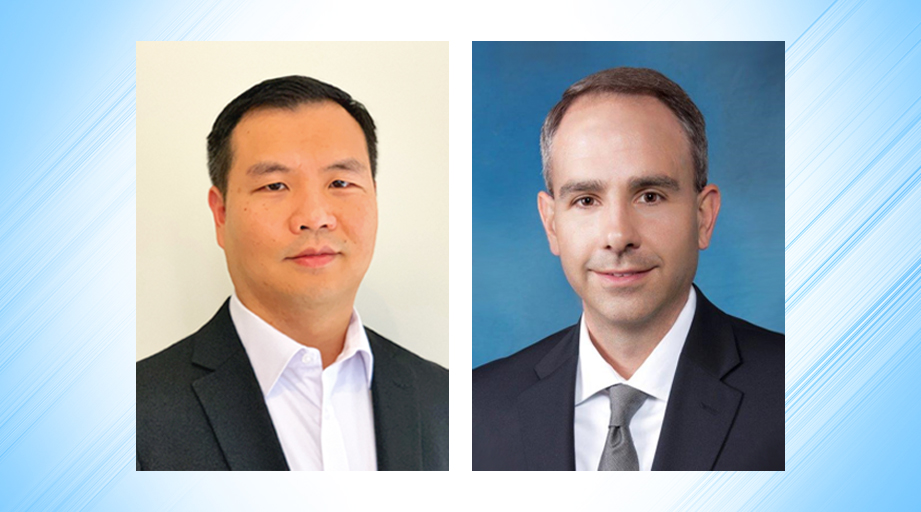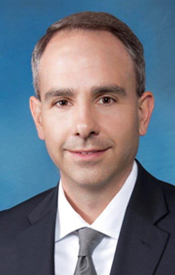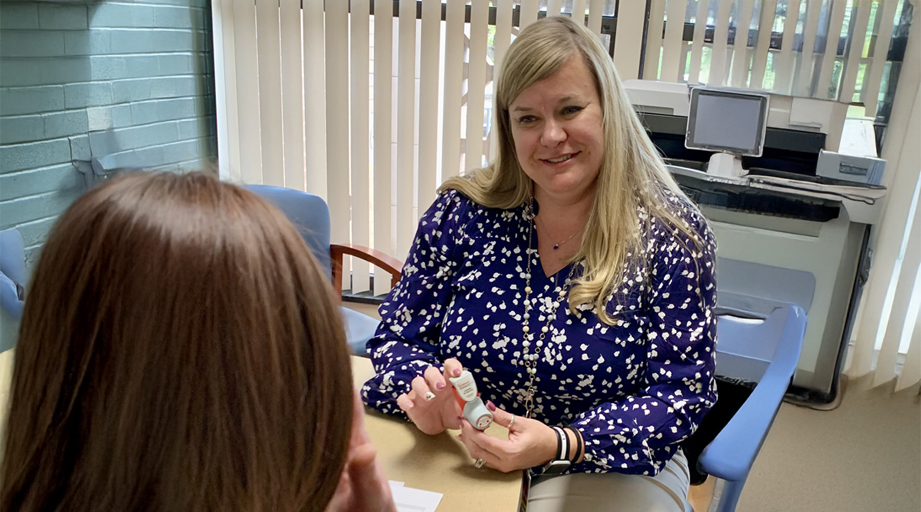
Ronald Campbell and colleagues had been interested in developing a pharmacogenomics program at Allegheny Health Network in Pittsburgh. Then he read about the Pharmacogenomics Accelerator, a joint program offered by ASHP and the University of Minnesota College of Pharmacy.

“It just seemed like a good fit to help us get on track to establishing a program,” said Campbell, a manager of clinical services in pharmacy-cardiology.
Now in its second year, the 12-month Pharmacogenomics Accelerator aims to spur the implementation and growth of pharmacy-led pharmacogenomics services in hospitals and health systems. That could mean improving the health of millions of people across the U.S. by personalizing medication therapies based on patients’ pharmacogenomic profiles, which can indicate how a person’s genetic attributes might affect their response to certain medications.
A shared learning experience
The accelerator includes several types of training, including virtual monthly cohort calls covering the steps of implementation science, webinars featuring case-based learning, and coaching sessions providing direct program support.
Participation in the program also includes access to ASHP’s Pharmacogenomics Certificate, which is worth 19.5 continuing education credits to provide structured didactic training to the institution’s team members.
“It’s been going very well,” Campbell said. “One of the great parts of the program is it creates the environment that supports a shared learning experience, and you can tap into leading-edge organizations that have invested in pharmacogenomic services … to run questions by and hear expert opinions on what their barriers were and how they overcame them. We have monthly meetings with all sites in our cohort, as well as regular scheduled breakout sessions. It’s definitely helped accelerate our ability to get something started here.”
Campbell and seven pharmacist colleagues participating in the accelerator are planning to start testing this fall for loss of function in the CYP2C19 enzyme in patients presenting with a heart attack. The test result could indicate how well patients metabolize some cardiac medications.
Pharmacists meet monthly with their coach, who has helped them connect with another organization that launched a CYP2C19 testing program to learn about challenges and successes.
Campbell said participants should go into the program with an open mind. “It’s a journey, and the iterative process is important. From what we thought was going to happen to where we’re at now, things changed rather dramatically,” he added.

Implementing PGx testing
Shortly after accepting the position of pharmacogenomics specialist at Henry Ford Health System in Michigan, Long To discovered the accelerator. Precision medicine had been in existence for a while in the health system, but the pharmacogenomic testing piece had been missing. To was charged with building the program and was wondering how to connect with experts and advice. A senior leader in the health system referred him to the accelerator.
“It had program building and networking — the two big things we needed,” To said. “We felt like we had the resources. It was just a matter of how to put all the pieces together for a successful program.”
Around the start of the program last fall, To kicked off the health system’s cardiology initiative testing for the CYP2C19 enzyme in post-heart attack patients with stents. Experts with the accelerator helped him validate the workflow and answered his questions about program expansion.
Now, he’s working on adding several other initiatives, including function and metabolism of capecitabine and 5-fluorouracil in gastrointestinal and genitourinary cancers; UGT1A1 and metabolism of irinotecan in gastrointestinal cancers; and TPMT and NUDT15 and metabolism of azathioprine and mercaptopurine in nonmalignant immunologic disorders and malignant conditions like acute lymphocytic leukemia.
“Progress typically can be slow due to reimbursement and insurance coverage, along with the size of the organization and the need to build infrastructure, but we are making good progress,” said To. “We anticipate launching at least two more initiatives within the next quarter. By the end of the year, our team hopes to also offer pharmacogenomic testing for behavioral health disorders such as depression.”
Coaching, monthly meetings, and case studies
To said he has appreciated the monthly meetings and the step-by-step guide that covers the selection of team members, consideration for testing, necessary laboratory elements, and education development for healthcare providers. Each monthly meeting has a theme and helps support a timeline to build the program, he said. “It also helps us develop our business strategy,” To added.
The case-based learning was helpful in seeing the implementation of pharmacogenomics services and management of complex cases. Having a coach was instrumental keeping his group on task, To said. “It helps us assess the resources needed, buy-in for the program, metrics to capture, and other issues related to the big-picture initiatives within the program,” he said.
Additionally, To is taking advantage of the pharmacogenomics certificates offered through the accelerator. “We’re a five-site hospital system,” To said. “It’s a great way to promote the program and get clinical pharmacists interested to help us expand and maintain the program and [serve as] a point person for each site.”
To and his team are also working on integrating pharmacogenomics data into the electronic medical record to provide clinical decision support. “Our goal is to create best practice alerts to optimize medication prescribing for our providers,” he said.
Once completed, To said, his team can notify providers to consider alternatives if a particular patient is a poor metabolizer of a prescribed medication.
Regardless of how far along pharmacists are in building a pharmacogenomics program, he said, the accelerator can help.
“It’s not just the program itself that’s helpful; it’s also the networking that is invaluable because after we complete the 12 months in the accelerator program, I can tap into relationships I’ve developed with these experts who I would likely see at future conferences or be able to contact for advice,” explained To. “It’s just an absolutely invaluable experience.”
If your site is interested in joining the third accelerator cohort, which starts this fall, email [email protected] or visit the Pharmacogenomics Accelerator program for more information.








